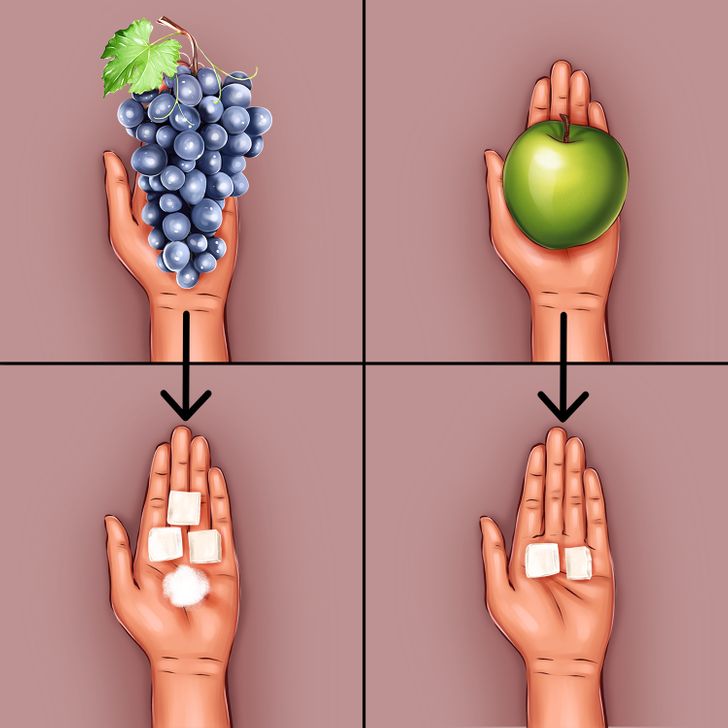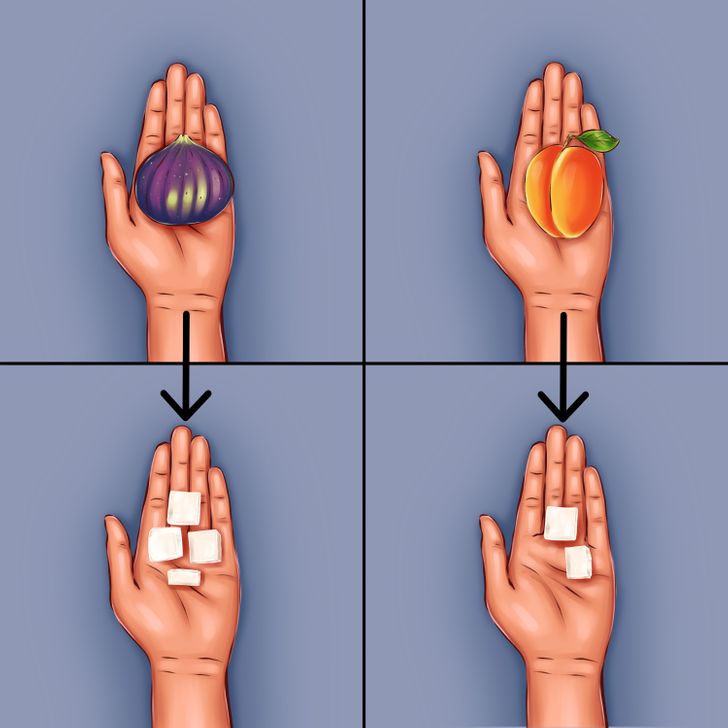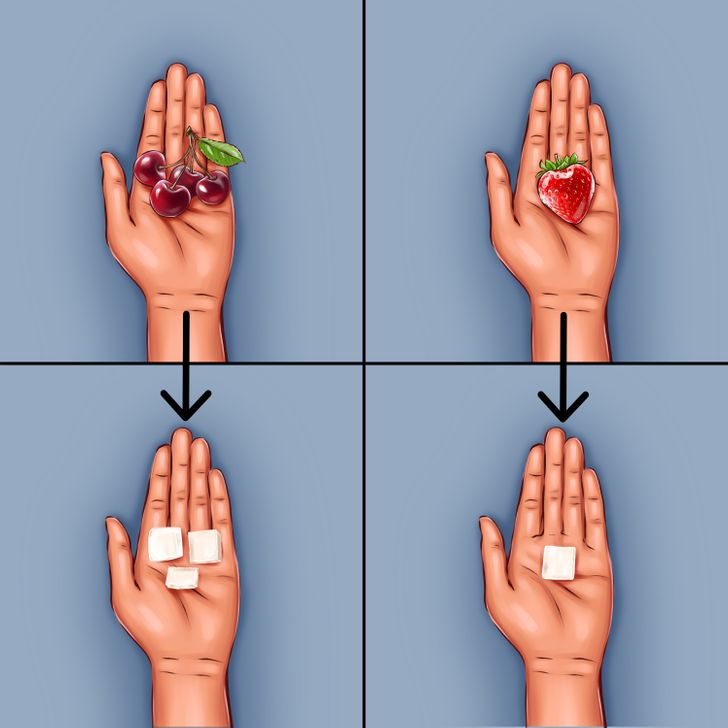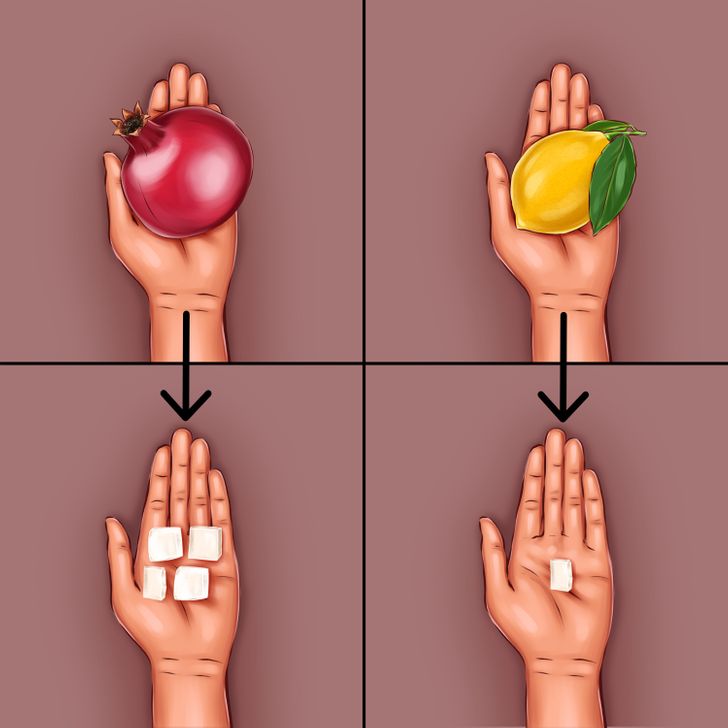How Much Sugar Different Fruits Contain
People have known about sugar since ancient times. Its name originates from the Sanskrit word, śarkarā, which means “ground or candied sugar.” Everyone is aware that this sweet product is mainly obtained from sugar beets and sugar cane. However, sugar is also present in many berries and fruits, and, in fact, we can consume much more sugar than we put in our morning tea.
We at 5-Minute Crafts decided to study this topic in more detail and found out how much sugar is contained in fruits that we consume regularly. Some of the data turned out to be completely unexpected for us.
In this list, we identified the amount of sugar per 100 g of the product.

- Apple: 10.39 g
- Apricot: 9 g — both fresh and dried apricots are a perfect source of group B vitamins and fiber.
- Fig: 16.3 g — there’s almost as much potassium in fig fruits as in bananas.
- Pineapple: 9.29 g — it is low in protein and fat but high in carbohydrates. This fruit also contains a lot of manganese; 100 g fits as much as 44% of our daily norm.


- Lemon: only 2.5 g — and, of course, a lot of vitamin C.
- Lime: 1.7 g — refreshing lime fruits contain so much vitamin C that 100 g is enough to get 35% of your daily norm.
- Raspberries: 4.42 g — raspberries also contain a lot of manganese, a microelement that is important for our bones.
- Sweet cherries and sour cherries: 8.5 g to 12.8 g, respectively

- Cranberries: 4.3 g
- Tangerine: 10.58 g — they also contain vitamins C, E, and B.
- Pomegranate: 13.67 g — the pomegranate fruit contains a lot of vitally important vitamin K; 100 g of pomegranate accounts for 16% of the required daily norm.
- Mango: 13.7 g — mangoes are also rich in vitamin C, almost as much as citrus fruits.
Share This Article